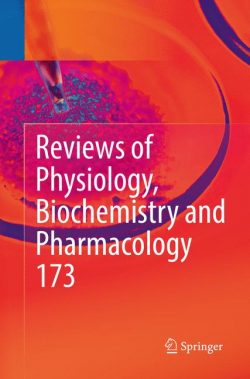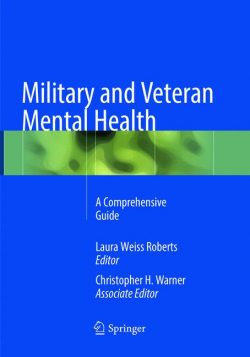This book presents an international research-based framework that has empowered parents of children with autism spectrum disorder (ASD) to become critical decision makers to actively guide their child’s learning and self-advocacy. Parents can use this framework to identify their child’s vision and dreams, and to work with educators and service providers to establish specific learning goals and to implement effective interventions and programs that enable their child to achieve those goals and realise their vision for the future.
The book begins by reviewing available research on evidence-based practice for children with ASD and outlining the Cycle of Learning decision-making framework for parents and professionals. Throughout the remainder of the book, case studies are presented to illustrate the ways in which different parents have successfully utilised this framework to develop effective plans for their child and to advocate for learning and education programs for both their child and other children with ASD in school and community settings. In addition, it highlights concrete examples of how parents have used the framework to empower their children with ASD to develop their self-awareness and self-determination, and to be able to self-advocate as they move through adolescence and into adult life.
Part 1 Effective practice and decision-making for parents of children with autism spectrum disorder.- 1 Defining the problem.- 2 Evidence-based practice and autism spectrum disorder.- 3 The Cycle of Learning: A framework for decision-making.- Part 2 Empowering parents to create education plans for their children with autism spectrum disorder.- 4 Empowering parents to create a vision for their children with autism spectrum disorder.- 5 Developing education plans within curriculum frameworks: Creating profiles and goals.- 6 Facilitating self-determination through education planning.- 7 Developing effective transition plans.- Part 3 Systems advocacy: Facilitating change at the systems level.- 8 Parent advocacy with schools: A success story.- 9 Creating a community of practice.- 10 Empowering parents to become informed advocates and decision-makers.- 11 Understanding law and policy to gain the best educational opportunities for children with autism spectrum disorder.- 12 Finding the common thread: Bringing it all together.
Amanda Webster is a Senior Lecturer at the Faculty of Social Sciences, University of Wollongong. She has gained national prominence for her focus on creating successful school communities for students with autism spectrum disorder (ASD) and their families. Starting her career nearly 30 years ago as a group home parent for adult women with autism and intellectual disabilities, she has worked closely with individuals with ASD and their families as a school leader, teacher, specialist consultant, and behaviour analyst in the USA and Australia. Since moving into the university setting, she has served as the Program Convenor for the Autism Studies program at Griffith University and is a researcher in the Cooperative Research Centre for Living with Autism.
Joy Cumming is a Professor of Education and Director of the Assessment, Evaluation and Student Learning research concentration at the Learning Sciences Institute Australia, Australian Catholic University. Originally a secondary school teacher for English and Mathematics, she has been involved in educational research for nearly 40 years. She is internationally recognised for her work in educational assessment, including concerns about quality education practice, assessment and accountability for diverse students and inclusive education. In addition to educational qualifications, she holds formal legal qualifications.
Susannah Rowland is currently completing a Master of Autism Studies at Griffith University, and aspires to work with families of children after graduation. Her present qualifications include a Bachelor of Education in Early Childhood and a Graduate Diploma of Education in Language and Literacy. Susannah has worked as an early childhood educator and director in Australia and Hong Kong, and as an early years co-ordinator in London. Her teaching experience includes work with children from a range of cultural and linguistic backgrounds, in a variety of educational settings.
This book presents an international research-based framework that has empowered parents of children with autism spectrum disorder (ASD) to become critical decision makers to actively guide their child’s learning and self-advocacy. Parents can use this framework to identify their child’s vision and dreams, and to work with educators and service providers to establish specific learning goals and to implement effective interventions and programs that enable their child to achieve those goals and realise their vision for the future.
The book begins by reviewing available research on evidence-based practice for children with ASD and outlining the Cycle of Learning decision-making framework for parents and professionals. Throughout the remainder of the book, case studies are presented to illustrate the ways in which different parents have successfully utilised this framework to develop effective plans for their child and to advocate for learning and education programs for both their child and other children with ASD in school and community settings. In addition, it highlights concrete examples of how parents have used the framework to empower their children with ASD to develop their self-awareness and self-determination, and to be able to self-advocate as they move through adolescence and into adult life.
Shares critical information on evidence-based practice and a decision-making framework to help parents select and implement effective learning programs for their children with autism spectrum disorder (ASD)
Presents case studies demonstrating how families have put the framework into action to become leaders and advocates for their child’s learning and for other parents and children with ASD in school and community settings
Provides educators and professionals with critical information, enabling them to engage in collaborative planning and successfully implement programs that support the needs of children with ASD and their families
Offers an essential basis for researchers working to develop effective practice and opportunities for individuals with ASD and their families in multidisciplinary settings
Addresses the needs of academics providing tertiary teaching programs relevant to individuals with ASD in the fields of education, psychology, social work, allied health, and medicine





